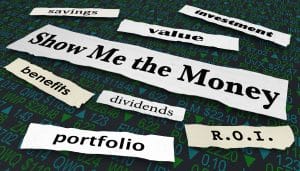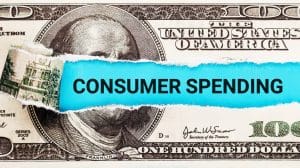
Chris Kuehl
Managing Director • Armada
It is a campaign year and we all know the drill by now. It was summed up by James Carville back in the Clinton years. “It’s the economy, stupid”. The campaigns thus far have focused on the party faithful and what motivates them. The rest of us have only started to make up our minds on governors, senators, representatives and the like. What matters to the majority of voters is pretty basic – jobs, economic security and taxation. We want what we have always wanted – high pay, lots of services at the same time we have low taxes and cushy jobs. We will now observe all these politicians promising this and more. Those in power now will assert that we already have all that and we can trust them to provide more. Those seeking to replace the existing order will assert the current bunch is incompetent and that only the new bunch will have all the answers. What is a voter to do?
There are three appropriate reactions to all this. The first is to determine what these aspirants are actually capable of. There is a great deal of talk about what China can be forced to do. The fact is that China can’t be made to do anything it doesn’t choose to do. We can react to Chinese actions with threats or we can try to cajole them. We are using tariffs to “control” Chinese exports but they simply find numerous ways around them. If these politicians really want to make the US more competitive, they need to address what US business needs – trained workforce, good infrastructure, innovation support, expanded R&D. Every speech by a political aspirant should provoke a chorus of “how do you intend to accomplish this – specifically”.
A second appropriate reaction is to adopt a highly skeptical mindset as one demands to know where these stated “facts” come from. It has long been noted that there are lies, damned lies and statistics. One can manipulate numbers to prove just about anything these days and now most of these trying to influence us do not even bother with manipulating data. They just spout something and assume we will believe it. Admittedly, dealing with this can be a lot of work as it requires us to examine reality. A short cut can be exploited by comparing what you actually see with what you are being told. If something is affecting your business, your neighborhood, your family – it is a safe bet it is affecting other people and businesses.
A third appropriate response is to demand more of the people that call themselves representatives. Ostensibly these men and women have been elected to reflect the wishes and desires of those they “represent”. That means those that voted for them and those that did not. That is how democracy is supposed to work. The needs of the business community are as varied as the businesses that are part of the economy but there are some near universal themes. Every time I speak to a group I hear similar laments – from those in NACM as well as those in the Casket and Funeral Supply Association and the Vinegar Institute (there are more). Top of the list is labor supply – trained workers that can be counted upon. Next up is regulation that makes sense. A close third is taxation – a system that does not punish success. Infrastructure runs close to the others – decent roads, a reliable energy grid, access to broadband, water access and so on. Add in the human infrastructure such as access to health care, ample police and fire protection. It is our responsibility to hold these political aspirants accountable. These are all soluble problems that only require focus and commitment from those that seek to be our leaders.
Recent Posts
- Chapter 7 Essentials: Steps Every Credit Professional Should Take December 5, 2025
- The Great Disconnect November 13, 2025
- Credit Tightrope: Balancing Trust and Risk with Marginal Customers November 11, 2025
- What is American Business Dynamism and What has Happened to it? October 17, 2025
- Incoterms: The complications when using them with letters of credit October 13, 2025
- Expectations September 11, 2025











